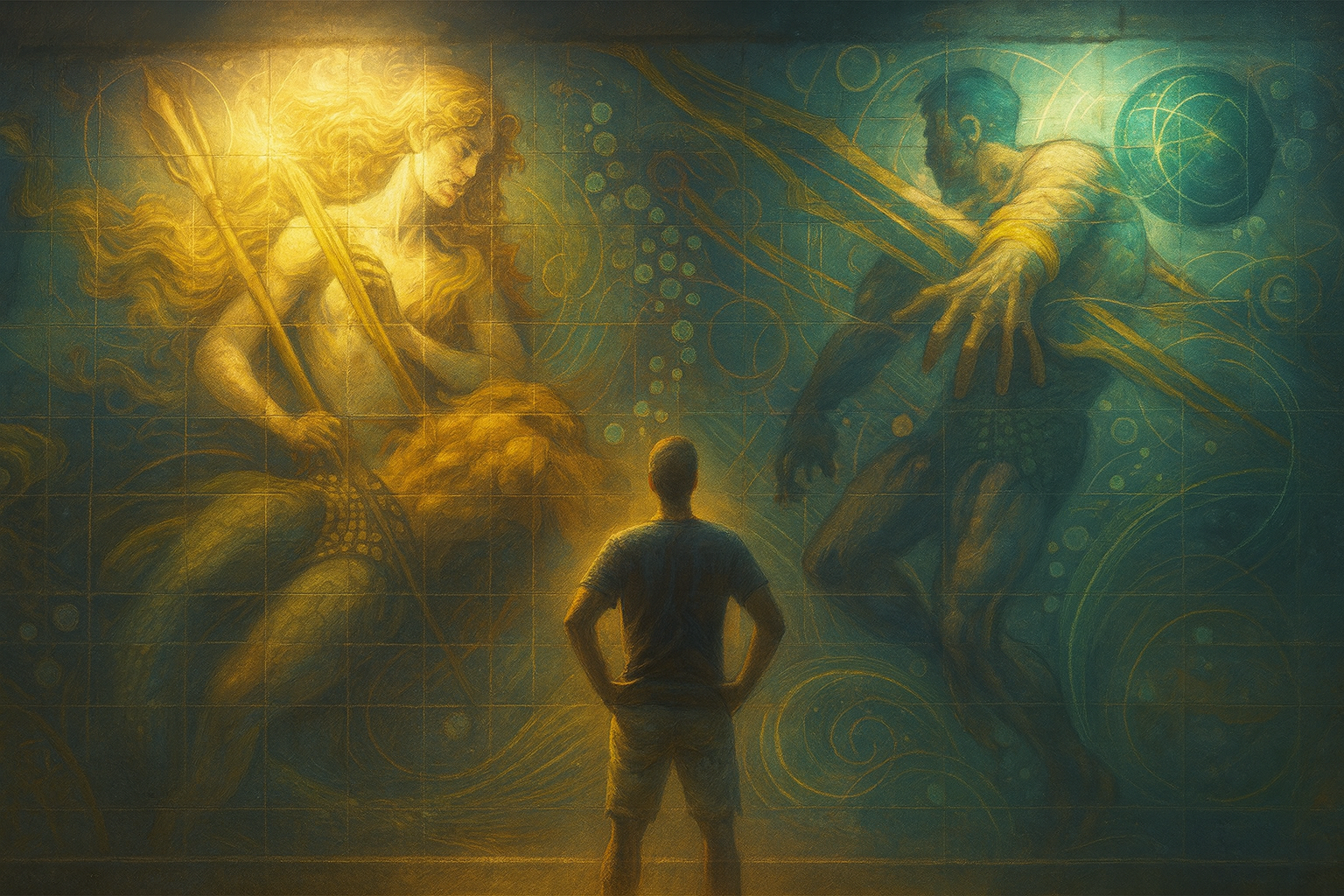The Architecture of Energy

Earlier this week, I facilitated an internal workshop on the Working Genius framework by Patrick Lencioni. I stood before my colleagues, explaining how the six “geniuses” reveal the types of work that energise or drain us, and guiding them to understand themselves and how they function as a team. It was a simple exercise, but a powerful one. I was in my element, doing work that is perfectly aligned with my particular genius profile.
The framework allocates the six geniuses across three domains: Genius (work which gives us energy), Competency (work which we can do, but which takes effort) and Frustration (work which drains us of energy). I decided to apply the framework to my own work style before presenting it to others. What began as simple preparation turned into revelation, becoming one of the most profound mirrors I’ve ever held up to myself. By the time I stood on stage, buzzing with the energy facilitation always gives me, something had shifted. As if the dots of a long-held self-story finally connected, forming a pattern I’d been too close to see.
My profile revealed the Geniuses of Wonder and Galvanizing, meaning I have a natural ability to ask big questions and rally people toward ideas. My Competencies are Invention and Discernment, so I can generate and refine creative solutions, though they take some effort. My frustrations are Enablement and Tenacity, the zones of sustained support and follow-through.
In simpler terms: I’m at my best when imagining possibilities and initiating movement. I thrive on vision, momentum, and meaning. But when the initial spark fades and the long, often slow work of completion begins, my energy dwindles. I would get frustrated with myself for losing energy or interest in certain projects after a while and, for most of my life, I saw this as a flaw, a failure of self-discipline.
Understanding my profile reframed everything. It wasn’t that I lacked drive or commitment to follow through; I simply draw energy from the beginning of things, not the end. Many of us judge ourselves harshly for losing steam midway through projects, mistaking changing energy for lack of commitment. For the first time, I saw my unique rhythm not as a weakness to correct but as a superpower to leverage.
That insight didn’t just illuminate how I work, it helped me make peace with something I’ve carried for years: an unwritten book.
See, dear reader, since my teenage years, I’ve dreamed of writing an epic fantasy novel. I have characters, maps, outlines, cultures, sketches, and mythologies. I have a working title, The Lineage Chronicles, and I spoke to everyone I could about it. Yet, in the almost two decades since I first thought of it, I still don’t have a manuscript. Every few months or years, I’d reignite the dream, only to stall again somewhere between chapter one and two. And every time, the same voice in my head would whisper that I’m not disciplined enough, or that I’m not a real writer, because real writers finish.
But now, with the Working Genius lens, I see it differently. Writing an epic novel is the epitome of Tenacity. It’s a slow, solitary, meticulous pursuit. Tenacity is one of my frustrations. It wasn’t a lack of willpower that held me back from writing my book for so long; it was a mismatch of energy.
This realisation lifted a weight I had been carrying for years. The shame I felt began to dissolve. There was nothing wrong with me. I simply wasn’t wired to spend years alone at a desk working on the same story. My gifts lie elsewhere, in connecting, imagining, and creating.
What does this mean for the world that has lived inside me for half my life? Does my dream fizzle away, a sunk cost of time and energy? No. To write a novel, I need to rethink how I will do it, knowing that I will inevitably lose momentum, as I have many times before. For those of us who are drained by the slow slog of completing long projects, we need to be deliberate in how we approach this phase of the work. If we aren't working closely with someone tenacious who can keep us going when we inevitably lose energy, we need to hack ourselves and gamify the process to ensure that we reach the finish line.
Maybe I need to write collaboratively, in mixed media, or through short stories. Perhaps it’s not a novel I’m meant to write, but a story that takes a different shape. I haven’t decided yet, and that’s OK. For years, I’d been attached to the form of the dream rather than its essence.
The Working Genius framework taught me something deeper than work preferences. It revealed how vital self-knowledge is to freedom. I no longer carry the shame of an unfinished book. Instead, I carry curiosity about how else the story might come alive.
So, dear reader, think about the work that lights you up, and that which dims you. By understanding our natural sources of energy, we stop forcing ourselves into shapes that don’t fit. We stop confusing exhaustion with inadequacy. In understanding that, we finally give ourselves permission to begin anew.
Until next week,
Ric.
If these words resonated, I invite you to subscribe. Each week I share reflections on living with intention, growing without rushing, and being still while becoming.
And if someone you care about might need this, feel free to share it with them.
